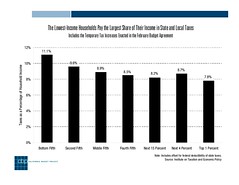I wanted to add a little more about this “loophole” I discussed earlier. For starters, let’s look at how residential properties are transferred. It’s a relatively simple transaction, leaving the banks out of it, as the mortgage is a deal between the purchaser and the bank, it really is a two parties, simple transfer. The purchaser pays the seller for the parcel. It’s easy to see that there was a transfer there.
But commercial properties are far more difficult. There are several scenarios where it becomes difficult to answer what seems like an easy question: Was the property transferred? The transfer triggers a reassesment, and usually higher revenue for that county. Let’s consider a couple of those situations, but these are not the only tough questions on when to reassess:
1) Purchase of a Corporate (or other legal) Entity
Here, the question is what was sold? Did the acquiring company merely purchase stock? Or should the property be considered as having sold since there is a new owner? Take the sale of the Equity Office Group. I used to work in one of the Equity Office buildings in fact. In 2007, the Company was sold to the Blackstone Group, a private equity firm. Yet, Equity Office (EO) was a vast company, and sold for $39 Billion. So, was the purchase of EO a transfer of the properties in California? Did Blackstone simply purchase stock in EO, or did they purchase a bunch of properties? If so, what is the value of the properties? How do they attribute money for each of the buildings that EO owns?
This question is still open for debate. Blackstone made some of this a bit easier by selling off some of the properties, but a complete resolution on these kinds of cases is really tough for the affected assessors.
2) Partial Transfers
There are a few partial sales in residential property, but it is far more common in commercial property. Real estate investment trusts (REITs) allow several owners to own a building or a group of properties. What if one of the large participants in the REITs leave? You might have a new majority owner of the property, yet is there a transfer?
These cases end up in court frequently, and often the owners of teh property can vastly change without triggering a transfer and a reassessment of the property. Homeowners generally can’t avoid these reassessments, and besides the fact that commercial properties sell less often, this slight of hand is why commercial properties pay so much less today in comparison to residential properties.
The Facts Speak for Themselves
Phil Ting is fond of citing a statistic:
30 years ago in San Francisco, commercial property owners contributed the majority of property taxes, 59%, and residential property owners contributed 41%. Today, we see the reverse: commercial property owners contributed just 43% of property taxes in 2008 while residential property owners contributed 57%. (SF Chronicle 5/21/09)
That statistic should be somewhat shocking to voters who were around to remember the 1978 vote. Looking back at the information from that vote, you’ll see the advertising and ballot argument focused on keeping poor granny in her house. Yet Prop 13 was always a project of the corporations and the landlords. Howard Jarvis was whiling away his time as the lobbyist for Los Angeles Apartment Owners Association, incidentally where the Yes on Prop 13 HQ was located, when he emerged from obscurity. The Apartment Owners funded Prop 13, and commercial property owners will be sure to protect it from attack.
If Prop 13 is to be reformed, it must come from homeowners and renters that are being slagged with higher taxes. It should come from those who use services, like our K-12 education system, higher education, and the state parks. It needs to come from a well-informed populace that sees Prop 13 for what it is: A Corporate Power Grab.
This discussion is not to say that the “loophole” is necessarily the biggest issue relating to split roll. It isn’t, it is just one way that the corporations have found to use the system that Prop 13 put in place to avoid paying their fair share.

